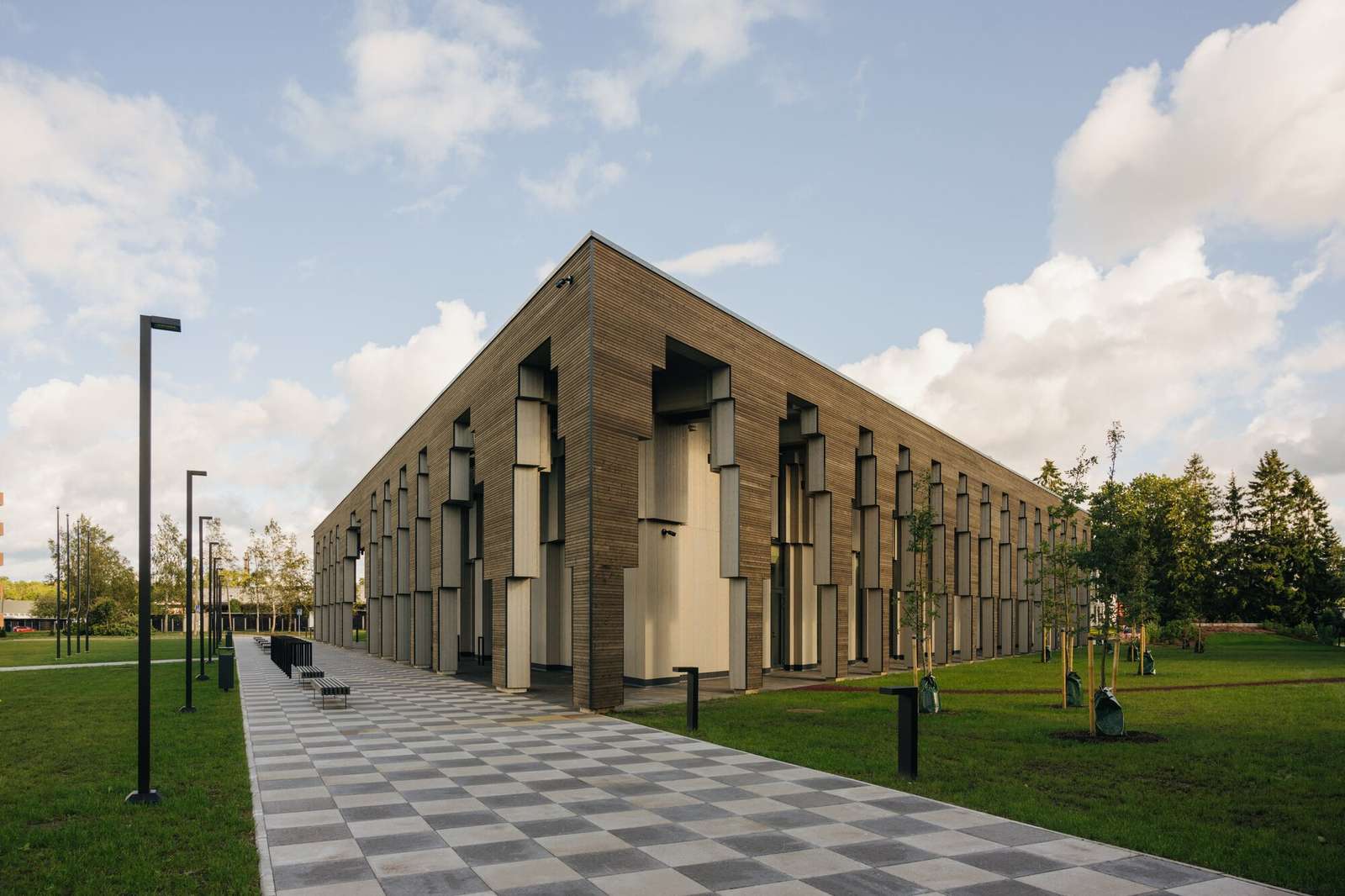The Rural Municipal Building in Saue / molumba
The Rural Municipal Building in Saue / molumba


Text description provided by the architects. The rural municipal building is located in the southern part of the central park of Saue giving it a logical and dignified closure. Viewed from the outside, the office and administrative building seem like a pavilion in the public park. The contradiction between the privacy and the prominent public location of the work environment is solved by a double-skin façade. On the one hand, the archaic covered archway carved into the laconic triangular volume gives the building its administrative prominence in the local urban context but at the same time functions also as a public shelter in the park and ensures sun protection for the interior spaces.



The building opens towards the square extending along its side. The courtyard and the parking lot are located on the southern side of the building where the relief is raised to the second floor providing the employees with more private access to the park. The park benches between the low shrubs on the slope also offer a cozy seating area for the locals.


The inner logic of the compact building is similarly based on layers. The outer perimeter of the building with a triangular layout accommodates the reception area for locals and public work areas with their open-plan wrapping around the square core of the building. The contrasting closed volume houses on two floors are the council meeting hall, smaller meeting rooms, and other functions supporting the daily work. The interior architecture of the activity-based space is laconic with the even tone of wooden constructions replacing the standard white walls.



The outer layer of the CLT panels of the full timber building is exposed in the interior with its character highlighted by the abrased panel surfaces. The HVAC systems are all hidden under the raised floor and behind the walls on the second floor, leaving the beautiful CLT ceilings exposed. The rural municipality building of Saue meets the requirements of the Class A energy label. The preference for timber as a sustainable material with a small carbon footprint in public architecture was the joint effort of the architect, engineers, and interior architect that resulted in clever solutions in the general concept as well as in smaller details.








